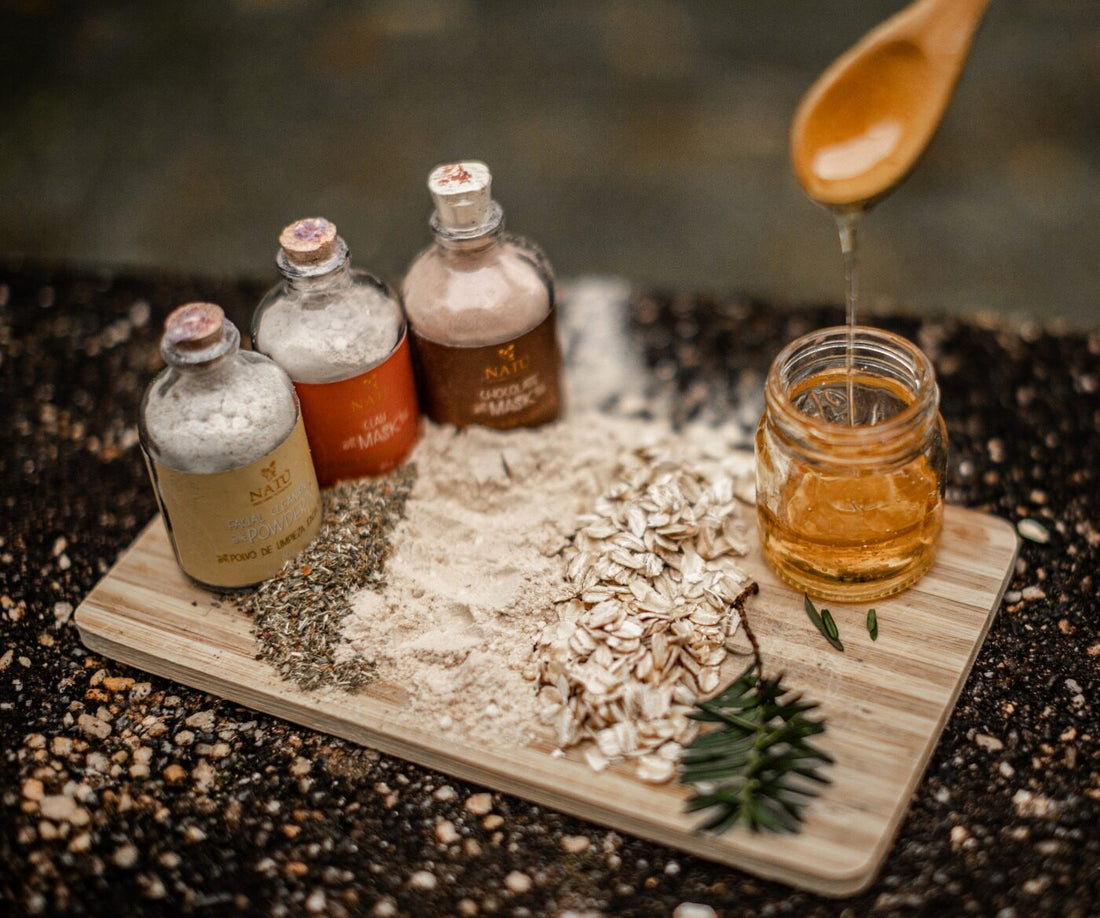
Natural vs. Organic vs. Edible Skincare: What’s the Difference?
Share
When it comes to choosing skincare, the labels can get overwhelming: “natural,” “organic,” “clean,” “non-toxic,” “edible-grade.” But what do these terms really mean? Are they regulated? Are they different from each other? And which one is actually best for your skin?
Let’s break it down so you know exactly what you’re putting on your face and body.
Natural Skincare: Close to Nature, But Loosely Defined
The term “natural” suggests that the product is made from ingredients found in nature: plants, minerals, oils, butters, clays, and so on. However, the word isn’t heavily regulated. Some “natural” products may still contain synthetic preservatives, fragrances, or stabilizers.
A truly natural skincare product will prioritize botanical ingredients over laboratory-made compounds. That means oils from almonds, avocado, coconut, herbs like chamomile or rosemary, clays like bentonite or kaolin, and extracts like green tea or calendula. However, since the industry has no legal standard for the term “natural,” it’s crucial to look beyond the front label.
Pros:
- Gentle on sensitive skin (if truly free from irritants)
- Lower chance of exposure to petrochemicals or synthetic toxins
- Often more environmentally friendly
Cons:
- The term is vague; some brands use it as a marketing trick
- Not always 100% chemical-free
Example: A facial cleanser made with aloe, honey, and essential oils could still include synthetic fragrance unless you check the full ingredient list.
Organic Skincare: Nature, With Certification
“Organic” skincare goes a step further. It generally means that the plant-based ingredients were grown without synthetic pesticides, fertilizers, or GMOs. In the U.S., organic labeling is regulated by the USDA or third-party certifiers like ECOCERT.
Organic skincare prioritizes agricultural purity. For example, organic coconut oil must come from coconuts grown without chemical pesticides. This standard not only protects your skin from residual chemicals but also supports soil health, sustainable farming, and biodiversity.
It’s important to distinguish between “100% organic,” “certified organic,” and “made with organic ingredients”—these all mean different things legally. A certified product may contain a percentage of non-organic ingredients if they are not available in organic form.
Pros:
- Safer for your skin and the planet
- Supports sustainable farming practices
- Less likely to include harmful residues from industrial agriculture
Cons:
- Organic certification is expensive, so small brands may use organic ingredients but not carry the label
- Doesn’t guarantee the product is free of all synthetics
Tip: Look for labels like “USDA Organic” or “ECOCERT” if you want certified products. But also read the ingredient list—“certified organic” doesn’t always mean 100% organic.

Edible Skincare: If You Can Eat It, You Can Trust It
This is where things get truly clean. Edible skincare means every ingredient in the product is safe enough to eat. It goes beyond marketing claims, requiring a level of purity that matches food-grade standards.
Edible skincare aligns skincare with the same standards you expect for the food you eat. These formulas avoid anything synthetic: no emulsifiers, parabens, chemical preservatives, or fillers. It’s the ultimate test of ingredient safety—if you can eat it, it’s definitely skin-safe.
The textures and scents in edible skincare come from actual herbs, oils, and natural waxes—nothing artificial. These products rely on the body’s natural affinity for whole ingredients to provide moisture, repair, and barrier support without side effects.
Pros:
- Zero tolerance for toxins, parabens, and synthetic additives
- Ultra-safe for pregnant women, babies, and sensitive skin
- No greenwashing: if it’s edible, it’s clean
Cons:
- May have shorter shelf life without synthetic preservatives
- Often more expensive due to high ingredient quality
So Which Should You Choose?
The best choice depends on your values and your skin type. But here’s a cheat sheet:
- Sensitive or acne-prone skin? Try edible or well-formulated natural skincare.
- Want the safest option for your family? Edible.
- Eco-conscious? Organic or edible.
But above all, read the ingredient list. A label can mislead you—ingredients never will.
How Natú Botanicals Sets a Higher Standard
At Natú Botanicals, we don’t just make natural skincare. We formulate products using ingredients that are 100% edible-grade.
Here’s what that looks like:
- Daily Natural Sunscreen — Made with non-nano zinc oxide and avocado oil, it’s reef-safe, hypoallergenic, and chemical-free. No white cast, no petrochemicals, just powerful natural protection.
- Light Face Oil Serum — Blended with almond and coconut oils, it balances oily skin without clogging pores. Perfect as a primer or night serum.
- Natural Makeup Remover — Gently lifts makeup with coconut and almond oil. Nourishes your lashes while it cleanses.
We believe if you wouldn’t eat it, you shouldn’t put it on your skin. Simple as that.
